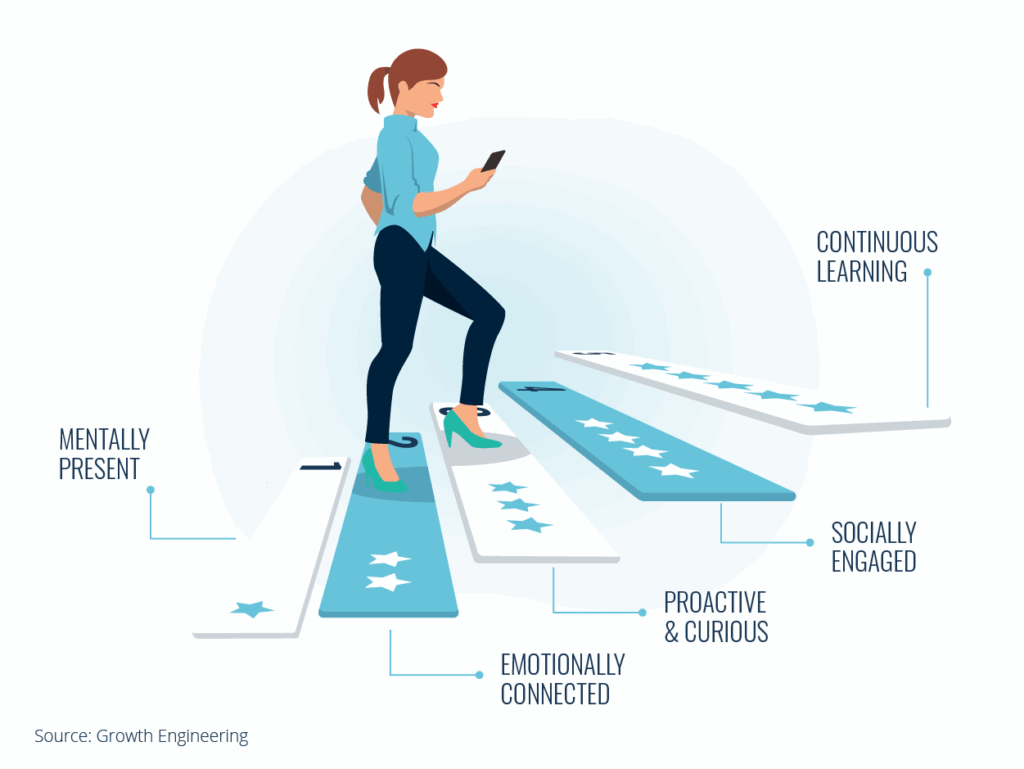Positive Reinforcement in Community Activities: Promoting Engagement and Social Development

Importance of Community Activities
Community activities are essential for fostering social connections among people from diverse backgrounds. They play a pivotal role in encouraging both personal and collective growth within a neighborhood. When residents engage in activities that involve positive reinforcement, they are more likely to participate actively and develop a sense of dedication to their community. This approach can lead to enriched engagement, facilitating meaningful relationships that enhance overall social development.
Positive Reinforcement in Nigerian Communities
In Nigeria, a myriad of community initiatives successfully leverage positive reinforcement to inspire involvement. These initiatives not only serve to elevate the community spirit but also create a network of supporters who contribute to a thriving environment. Some practical implementations include:
- Recognition Programs: Local organizations often acknowledge the hard work of volunteers through awards and public recognition ceremonies. This boosts morale, allowing individuals to feel appreciated for their contributions. Such accolades can include certificates, public shout-outs on community platforms, or feature articles in local newspapers, motivating others to lend a hand.
- Incentive-Based Learning: Workshops that focus on acquiring new skills—ranging from entrepreneurial training to agricultural techniques—often provide tangible rewards such as certifications or supplies for completing courses. This type of approach stimulates interest, pushing individuals to participate and thereby enriching their skill sets for better job opportunities.
- Celebration of Milestones: Commemorating achievements, whether it’s the establishment of a new community garden or the completion of a local project, fosters a deep sense of belonging and pride. Events centered on these milestones often include festivities that encourage residents to come together, celebrate their successes, and strengthen their community ties.
The Transformative Power of Positive Reinforcement
The application of positive reinforcement in these community initiatives elevates individual spirits and has the potential to transform entire neighborhoods. By establishing an atmosphere where every member feels recognized and valued, communities can bridge socio-economic gaps and enhance social cohesion. Engaging in these rewarding practices can yield lasting benefits, including reduced crime rates, increased trust among community members, and higher participation in civic activities.
This article will delve deeper into the multi-faceted aspects of positive reinforcement in community activities. It will shed light on its influential role in driving higher engagement levels and fostering substantial social development. Readers are encouraged to explore strategies that can be implemented in their own localities, as together, there is potential to build stronger, more vibrant communities across Nigeria and beyond. In doing so, we can set a precedent for how positive community interactions can lead to meaningful change and enhance the quality of life for everyone involved.
CHECK OUT: Click here to explore more

The Role of Recognition in Enhancing Community Participation
In many Nigerian communities, recognition serves as a powerful tool for promoting participation in community activities. When individuals feel valued for their contributions, it fosters a sense of duty and belonging that ultimately strengthens community ties. The psychology behind positive reinforcement suggests that acknowledging good behavior encourages its recurrence. In the context of community involvement, this translates to higher attendance at events, increased volunteerism, and sustained engagement in local projects.
For instance, community-driven events often feature public acknowledgments of volunteers and participants. Such practices not only celebrate individual achievements but also highlight the collective goals of the community. Recognition can come in various forms, including:
- Community Awards: Annual award ceremonies recognizing outstanding volunteers and initiatives can inspire others to emulate their efforts, creating a culture of giving back.
- Social Media Spotlights: Leveraging platforms like Facebook or Instagram, local organizations frequently share stories of community members making a difference. This not only elevates the individuals recognized but also motivates onlookers to participate more actively in future community endeavors.
- Local Events: Community fairs and gatherings that celebrate achievements, such as building a playground or organizing a health drive, provide a perfect platform for highlighting the hard work and dedication of participants.
The impact of this recognition is significant. Studies indicate that communities that actively engage in recognition practices enjoy greater social cohesion and increased civic participation. Participants feel more connected to their community and are more likely to contribute their time and resources. Moreover, such initiatives break down barriers that often inhibit collaboration among diverse community members.
Cultivating a Culture of Learning through Incentive-Based Programs
Another avenue through which positive reinforcement is effectively utilized in Nigerian communities is through incentive-based learning programs. These programs not only promote personal development but also build skills that elevate the community’s overall socio-economic conditions. By providing tangible rewards for participation, communities instill a thirst for knowledge and self-improvement among their members.
Examples of incentive-based learning activities include:
- Vocational Training Programs: Workshops that teach valuable skills like tailoring, carpentry, or computer literacy often grant certifications upon completion. These accolades empower individuals to pursue better job opportunities, thereby lifting entire families and neighborhoods.
- Health Initiatives: Nutrition and health education workshops often provide resources or materials to encourage attendance. Providing free medical checkups or health kits can further incentivize participation.
- Entrepreneurship Challenges: Competitions that reward innovative business ideas with startup funds or mentorship programs enhance the entrepreneurial spirit. Participants not only gain insights but also practical help to start their ventures.
These initiatives positively impact individual lives and contribute significantly to the community’s fabric. By transforming the narrative around skill acquisition and personal development, communities can witness a ripple effect where knowledge is shared, opportunities are created, and socio-economic barriers are broken down.
Exploring the Benefits of Positive Reinforcement
In the realm of community activities, the implementation of positive reinforcement strategies can significantly enhance engagement and contribute to social development. By recognizing and rewarding participation, communities foster a more inclusive environment that encourages collaboration and development.
| Advantage | Description |
|---|---|
| Increased Participation | Utilizing positive reinforcement encourages individuals to engage more actively by creating a sense of accomplishment. |
| Enhanced Social Bonds | Recognizing collective efforts strengthens relationships and fosters a sense of belonging within the community. |
Implementing these principles not only enhances individual experiences but also promotes a culture of support, where community members feel appreciated and motivated to contribute. The effectiveness of positive feedback can lead to a ripple effect, inspiring others to follow suit. In essence, communities that embrace positive reinforcement can pave the way for collaborative initiatives, ultimately leading to enriched social development.
LEARN MORE: This related article may interest you
Building Trust and Cooperation through Collaborative Projects
Another critical dimension of positive reinforcement in community activities is the emphasis on collaborative projects. Working together towards a shared goal enhances the bond among community members and promotes a greater sense of responsibility towards one another. By recognizing and rewarding collaborative efforts, communities can cultivate an environment of trust and cooperation, essential for sustained engagement.
Collaborative projects often harness the unique strengths of various community members, allowing them to play to their capabilities while learning from each other. For instance, community clean-up campaigns organized in major Nigerian cities like Lagos and Abuja successfully mobilize residents by demonstrating a collective pursuit of a cleaner environment. Participants can be incentivized through:
- Certificates of Participation: Providing these certificates acknowledges the effort each individual contributes towards the common goal, reinforcing their role in the project’s success.
- Community Celebrations: Organizing end-of-project gatherings to appreciate all participants can foster camaraderie, allowing individuals to share their experiences and learn from one another, cultivating a sense of unity and belonging.
- Recognition Boards: Displaying names or photos of participants in public spaces can serve as a constant reminder of their contributions and inspire others to engage in future initiatives.
Furthermore, engaging in cooperative endeavors allows communities to build a higher degree of social capital. This is significant because enhanced social capital not only supports individual initiatives but also fosters resilience in facing communal challenges. For example, cooperative farming projects can uplift rural communities by sharing resources, knowledge, and profits, creating a dynamic system of mutual support that benefits all members involved.
Empowerment through Mentorship and Peer Support Networks
Positive reinforcement is also prevalent in mentorship and peer support networks within communities. These frameworks are designed to foster personal growth while encouraging community members to become catalysts for change. By establishing systems where experienced individuals guide others, communities empower their members to take proactive steps towards social development.
Mentorship programs can take various forms, such as:
- Youth Mentorship Schemes: Older community members can guide youths in academic pursuits or life skills, ensuring that traditional knowledge and practices are preserved while also addressing contemporary challenges.
- Skill-Sharing Initiatives: These programs allow individuals with specific skills to train others, fostering a nurturing environment where knowledge flows freely. For instance, a seasoned seamstress might teach young girls how to sew, instilling self-sufficiency and entrepreneurship.
- Peer Support Groups: Establishing groups focused on specific issues, such as mental health or financial literacy, enables individuals to share their experiences. Recognition through sharing can empower participants, making them feel valued for their insights and contributions.
The benefits of mentorship not only enhance individual skills but also solidify relationships within the community. As mentors recognize the achievements of their mentees, it creates a cycle of positivity that encourages further engagement and growth. Communities that prioritize mentorship and peer support ultimately cultivate an empowered citizenry capable of driving their development.
Throughout Nigeria, such practices have proven effective in promoting engagement and developing social networks. By recognizing efforts and fostering mentorship, communities can create a thriving ecosystem where every member feels they contribute and belong.
RECOMMENDED: Check out this similar article
Conclusion
In conclusion, positive reinforcement serves as a powerful catalyst for fostering engagement and enhancing social development within communities. By recognizing the contributions of individuals through collaborative projects, mentorship programs, and peer support networks, communities can create an inclusive atmosphere that cultivates responsibility, trust, and cooperation. These frameworks not only encourage participation but also inspire a sense of belonging, leading to greater social cohesion and resilience in addressing challenges.
The evidence from various community initiatives across Nigeria demonstrates that when members are acknowledged for their efforts—be it through certificates, community celebrations, or public recognition—it significantly boosts their motivation to remain involved. Moreover, by harnessing the strengths of each individual, communities transform into hubs of collective talent and resource-sharing, thereby elevating the overall quality of life.
As we move forward, it is crucial for community leaders and influencers to prioritize positive reinforcement as a strategic tool in their engagement efforts. Investing in mentorship and skill-sharing initiatives will empower citizens, equipping them with the necessary skills to drive their own development. Ultimately, a community that celebrates its members fosters a culture of continuous growth, encouraging every individual to play an active role in shaping a better future. The journey of community empowerment is ongoing, and with the right reinforcement strategies, the potential for positive change is limitless.
Related posts:
Positive Reinforcement Growth Mindset in Nigerian Education
The Importance of Positive Reinforcement in Building a Growth Mindset
Positive Reinforcement Strategies to Promote Resilience in Adults
Positive Reinforcement in Sports Practice: Motivating Athletes to Overcome Limits and Achieve Goals
Positive Reinforcement in Mental Health: Techniques to Cultivate a Resilient Mindset in Challenging ...
The Impact of Positive Reinforcement on Intrinsic Motivation: Uncovering Personal Potential

Linda Carter is a writer and self-discipline expert specializing in personal growth, habit building, and goal achievement. With extensive experience helping individuals develop focus, consistency, and resilience, Linda shares her knowledge on our platform. Her goal is to empower readers with practical advice and strategies to cultivate self-discipline, make intentional choices, and achieve success in both their personal and professional lives.